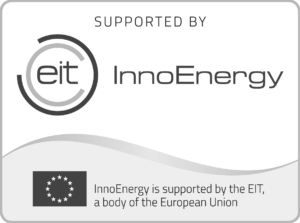30.01.2023
Five hot legal areas in health tech for 2023
 Health tech operates at the crossroads of health law and technology law. In addition, we also have to consider cross-cutting areas of law. And while navigating the labyrinth of legislation can be tricky, it is critical to find the right path to follow. Assistant Attorney-at-Law Liisa Maria Kuuskmaa (on the photo) from Law Firm Sorainen will provide an overview of five pressing legal areas in health technology. Remember that the term ‘health tech’ is incredibly broad and encompasses medicinal products and treatment methods as well as medical and diagnostic equipment, bioinformatics, health software and more.
Health tech operates at the crossroads of health law and technology law. In addition, we also have to consider cross-cutting areas of law. And while navigating the labyrinth of legislation can be tricky, it is critical to find the right path to follow. Assistant Attorney-at-Law Liisa Maria Kuuskmaa (on the photo) from Law Firm Sorainen will provide an overview of five pressing legal areas in health technology. Remember that the term ‘health tech’ is incredibly broad and encompasses medicinal products and treatment methods as well as medical and diagnostic equipment, bioinformatics, health software and more.
Data
There is no getting around data in health tech. For almost five years now, the General Data Protection Regulation (GDPR) has governed the processing of personal data and it continues to be a source of many practical questions for undertakings. At the same time, new regulations on the use of data have been and will continue to be introduced (please note that some of these regulations apply to the processing of all data and not just personal data). More specifically, the European Union has adopted the European Strategy for data with the aim of making the European Union a leader in the development of a data-driven society. The first outcome of the Strategy for data is the Data Governance Act (Regulation 2022/868), but there is more legislation on the way to ensure a single EU data market and the free movement of data, such as the Data Act, and area-specific common data spaces (such as the European Health Data Space). This means that undertakings operating in health tech will need to keep a close eye on new data strategy developments to ensure compliance with legislation and take advantage of the full business potential presented by this new legislation.
Protection of intellectual property rights
With all types of innovative products and services, intellectual property is a key concern. Undertakings who fail to consider intellectual property rights may unexpectedly find themselves in the unfortunate situation where they are unable to further market their product or service or can do so only after paying hefty licence fees. Intellectual property (copyrights, trademarks, patents, utility models, etc.) is just as important when it comes to health tech. According to the European Patent Office, the number of health technologies being protected has been growing steadily (statistics available on the website of the European Patent Office). And then there are the cross-border aspects to consider: how to market your product or service abroad without being hindered by intellectual property rights?
Undertakers have perhaps heard most about the protection of intellectual property in the pharmaceutical sector, but it is here that potential changes are expected in the future with regard to the EU pharmaceutical strategy.
Competition law
Competition authorities have been focusing on health and technology for quite some time. This seems to leave health tech at the very centre of competition authorities’ focus. For example, the Directorate-General for Competition of the European Commission has recently focused on the activities of pharmaceutical manufacturers and taken a closer look at, for example, various patent protection strategies as ways of abusing a dominant position.
Potential dominant positions and resulting restrictions under competition law are also a hot topic in the context of various innovative solutions with few or no competitors. For example, the proposed acquisition of GRAIL by Illumina last year caused a great deal of controversy and was blocked by the European Commission on the grounds that Illumina has monopolised the market for the supply of technology that is essential for GRAIL cancer diagnostics. The Commission’s main reasoning was that the merger of Illumina and GRAIL into a single group would allow Illumina to impede the launch of competing tests for cancer diagnostics.
When competitors work together to develop innovative healthcare solutions, it is imperative to pay attention to the competition rules surrounding cooperation and communication between competitors. Otherwise, undertakings face a serious risk of coming to the attention of competition authorities, which may involve hefty fines as well as significant reputational damage.
Regulation of artificial intelligence
Innovative health technologies frequently integrate artificial intelligence in one form or another. The regulation of artificial intelligence is currently one of the hottest topics in the European Union. More specifically, the European Union legislator is working on the so-called AI Regulation and the AI Liability Directive. Both pieces of legislation are still at the development stage and are open to change. However, if the existing proposals go ahead, this will mean a significant increase in regulations for health tech. In particular, this concerns medical devices that require assessment by a notified body under current law (MDR and IVDR). Such medical devices will likely be deemed high-risk AI systems under the new AI legislation. This will entail strict requirements for risk and quality management, documentation, data processing, system transparency, security, etc.
Funding
All walks of life need funds to survive. As does health tech. Should we be funding novel health tech solutions to ensure sufficient funding sources in the national health insurance system and fair solutions for patients, and if so, how? Countries in the European Union currently employ very different solutions. In Estonia, for example, the Health Insurance Fund uses an evaluation framework for digital health technologies. The European Union has also turned its attention to the issue of funding: The Health Technology Assessment Regulation (Regulation 2021/2282) will become applicable on 12 January 2025 and will set up a coordination group between the Member States to assess health tech solutions. The Regulation governs the assessment of medicinal products, certain medical devices and other such health technologies that are likely to have a significant impact on patients, public health or healthcare systems. The regulation is supposed to improve access to health tech in the European Union by harmonising the evaluation framework on which funding is based. Even though the Regulation will not enter into force for another two years, undertakings should familiarise themselves with the text of the Regulation already now.
Law Firm Sorainen is a member of the Connected Health Cluster.












